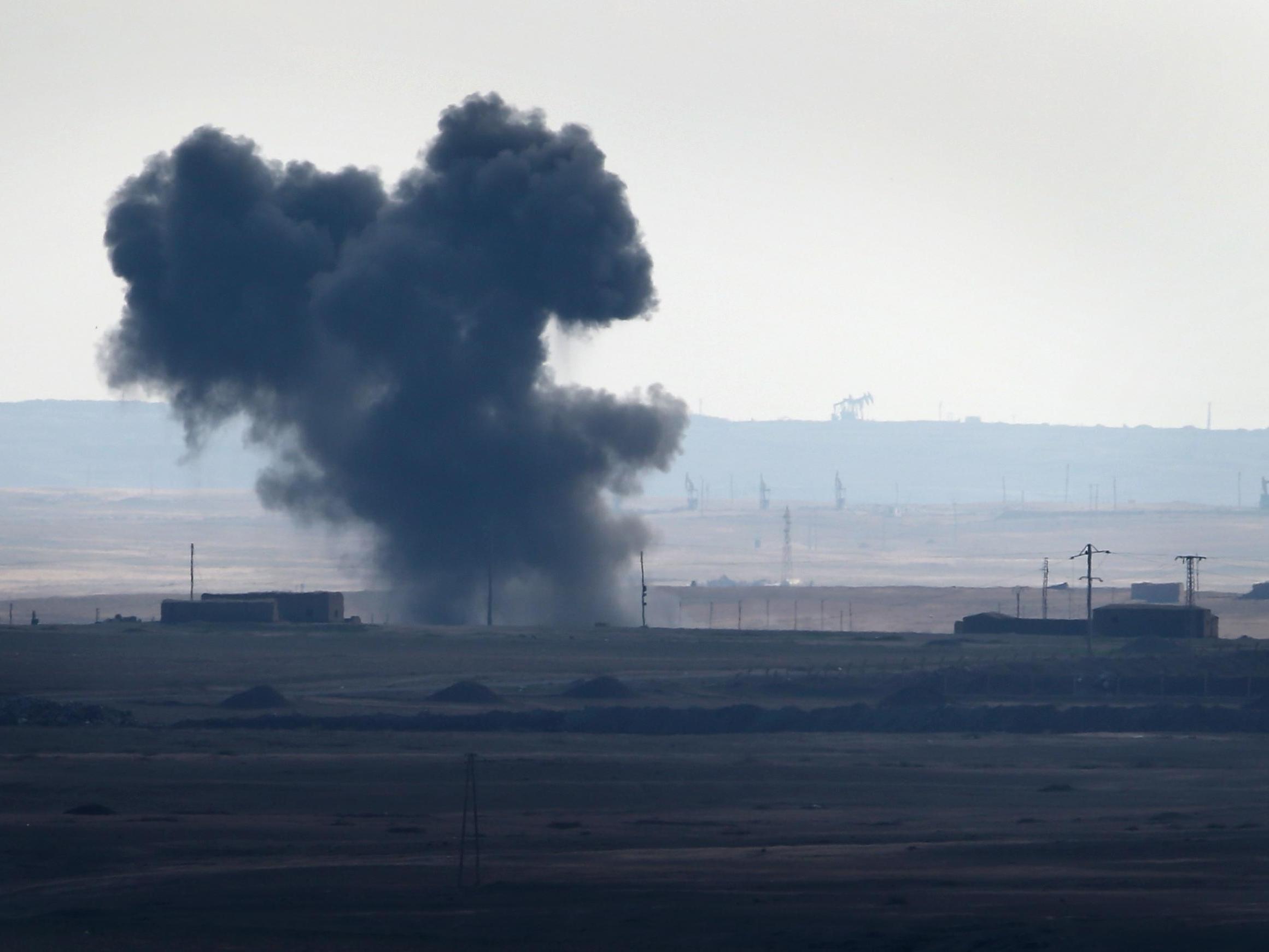US strikes militia bases in Iraq and Syria after death of American contractor
Trump administration blames Iranian-backed militia for attack on military compound

The US military has launched a series of airstrikes in Iraq and Syria following the death of an American contractor.
The Department of Defence confirmed that forces carried out “precision defensive strikes” against five sites belonging to Hezbollah Brigades, an Iranian-backed militia.
The Trump administration blames the group – also known Kataeb Hezbollah – for a rocket assault on a military compound near Kirkuk, in northern Iraq, on Friday, which left one American defence worker dead and several US and Iraqi soldiers wounded.
Retaliatory strikes hit three of the militia’s sites in Iraq and two in Syria, including weapons depots and the militia’s command and control bases, US officials said on Sunday.
Four fighters were killed as three US airstrikes hit the headquarters of the Hezbollah Brigades at the Iraq-Syria border on Sunday evening, Iraq’s Joint Operations Command said.
The airstrikes would limit the militia’s ability to carry out future strikes against Americans and their Iraqi allies, US defence secretary Mark Esper’s assistant Jonathan Hoffman said in a statement.
“Iran and their Kataeb Hezbollah proxy forces must cease their attacks on US and coalition forces, and respect Iraq’s sovereignty, to prevent additional defensive actions,” Mr Hoffman said.
But Iraq’s caretaker prime minister Adel Abdul-Mahdi condemned the US attack as a violation of Iraqi sovereignty and a “dangerous escalation that threatens the security of Iraq and the region”. He made no comment on Friday’s attack, in which several Iraqi soldiers were injured.
More than 30 rockets are reported to have been fired in Friday’s attack at the base near Kirkuk, which houses soldiers in the Combined Joint Task Force – an anti-Isis combat unit comprising American and Iraqi troops.
The US maintains some 5,000 troops in Iraq as part of an agreement with the Iraqi government to assist and train in the fight against Isis.
Meanwhile, Russian and Assad-led bombing in Syria continues in an attempt to eradicate the last remaining rebel group, Hayat Tahrir al-Sham.
Despite international calls for de-escalation, the United Nations warned on Friday that Idlib’s southern Maaret al-Numan region was “almost empty” after 235,000 refugees were forced to flee in the space of two weeks.
Trump ally Lindsey Graham said in response to the US airstrikes: “Very glad to see the US strike back against Iran/Hezbollah proxies in response to the attack on American service members in Iraq. The only language Iran understands is force.”
Iraq’s Hezbollah Brigades, a separate force from the Lebanese group Hezbollah, operate under the umbrella of the state-sanctioned militias known collectively as the Popular Mobilisation Forces. Many of them are supported by Iran.
Kataeb Hezbollah is led by Abu Mahdi al-Muhandis, one of Iraq’s most powerful men. He once battled US troops and is now the deputy head of the Popular Mobilisation Forces.

In 2009, the US State Department linked him to the elite Quds Force of Iran’s Revolutionary Guard, designated a foreign terrorist organisation by Donald Trump earlier this year.
The airstrikes come after months of anti-government protests in Iraq, which have cost nearly 600 lives, mostly at the hands of Iraqi security forces and the Popular Mobilisation Forces.
The mass uprisings prompted the resignation of prime minister Adel Abdul-Mahdi late last month. He remains for now in a caretaker capacity.
Earlier this month, US intelligence officials warned that Iran was “using the continuous chaos” in Iraq to build a hidden arsenal of short-range ballistic missiles in the country.
The Independent has previously reported that figures in Tehran’s Revolutionary Guard may be orchestrating the campaign to smash Iraq’s protests with excessive violence, as evidenced by a practice of snipers shooting to kill, which greatly inflamed the country’s tensions.
A UN report found that government and security officials “continued to stress that commanders did not order security forces to open fire at the protesters”.
Additional reporting by AP
Join our commenting forum
Join thought-provoking conversations, follow other Independent readers and see their replies
Comments
Bookmark popover
Removed from bookmarks